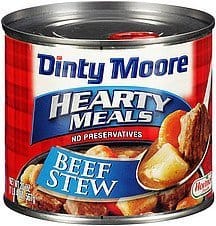“In the Pit” is a short story by Annie Proulx, included in the Heart Songs collection. “In the Pit” is a good example of a story with no Anagnorisis for the main character. If anyone has a revelation, it’s the reader. Character arcs are not compulsory. In real life as in fiction, sometimes people simply don’t learn and they don’t change. They go their whole lives with little understanding of themselves and others. A TV series with an unchanging main character is Mad Men. Don Draper, also with the ghost of a problematic childhood, is unable to move past his backstory. Season after season he doesn’t change while around him the world changes a lot. This juxtaposition is the point of interest. Blue is a kind of Don Draper character, but from rural New England.
WHAT HAPPENS IN “IN THE PIT”
Like Snipe [in the story “Heart Songs”], the outsider protagonist of “In the Pit” causes emotional pain through his misreading of others’ intentions.
During a winter visit back east, Blue goes to his family’s Vermont summer camp, for the first time in years, to inspect the damage done by vandals. Once there he finds some of the furnishings buried in a deep snow in a pit at the base of a small cliff behind the house. Dreaming of coming to the camp in the summer with his wife and child, he reestablishes contact with Mr. Fitzroy, a dairy farmer who has been kind to Blue as a child. Fitzroy’s wife has died; his house has burned down; and he has turned to drink while living in the former milk room on his farm. He does not remember Blue, but he welcomes him kindly and introduces him to Gilbert, a former convict to whom he has given shelter because, Fitzroy says, “I don’t hold the past against nobody.”
Blue is less tolerant. After seeing what looks like his family’s old toaster in Fitzroy’s quarters, he accuses Gilbert of vandalizing the camp and takes the toaster by force. The next day he looks in the pit again and sees his family’s toaster. The reader is left with the impression that this discovery has embarrassed Blue and probably dampened his plans to vacation at the cabin, but it has contributed little to his understanding of his own character.
Understanding Annie Proulx by Karen Lane Rood
In plot of “In the Pit” is a little similar to that old yarn whereby a man on public transport sits face to face with a dangerous-looking character. The dangerous-looking character defiantly takes the man’s cigarettes, then another, then another. The viewpoint man also keeps smoking from this box, and the big reveal at the end — when we’re expecting a Battle — is that it’s the viewpoint man who is mistaken — he’s been smoking the cigarettes of this menacing guy, who’s obviously not as menacing as he looks, otherwise he would’ve said something.
I don’t know if it’s a Jeffrey Archer original, but Archer wrote this story and called it “Broken Routine”. The story is collected in A Quiver of Arrows.
Annie Proulx does the story far better. The message here isn’t the simplistic: “Be careful how you judge people, because it might be you who’s wrong,” but a far more subtle portrait of a man’s psychology as he visits his childhood arena.
SETTING OF “IN THE PIT”
Like the others in this collection, newcomers are pitted against old. This conflict is symbolised not only by the people themselves but by a rich symbol web, first, in the opening with junk mail:
When the modern world intrudes into Chopping County, it does so via junk-mail coming through the post, as in the story “In the Pit”, where “Papers, magazines, letters, bills, offers to develop her film in twenty-four hours or insure her credit cards against loss, fliers and folders” provide the connection between consumerist society and the quiet lives in rural communities.
Annie Proulx’s The Shipping News: A Reader’s Guide by Aliki Varvogli
The season is winter, with thick snow covering objects in and around the yard. The snow covers objects like Blue has buried his memories.
SYMBOL WEB
Apart from photographs of his wife and adopted daughter, Blue brings his mother flowers called ‘gentian’.
Gentian is an herb. The root of the plant and, less commonly, the bark are used to make medicine. Gentian is used for digestion problems such as loss of appetite, fullness, intestinal gas, diarrhea, gastritis, heartburn, and vomiting.
Though it’s not said, perhaps Blue was named Blue because it’s his mother’s favourite colour. The camp is decorated with accents of blue, so that seems likely. The description I pulled up on the Internet isn’t exactly romantic, but it’s the first to come up. The flowers are already past it by the time he gives them to his mother. This sets the tone of the story.

The holes Blue makes ‘in the depths of the snow were a deep, unearthly blue’.
I’m not entirely clear about the symbolic significance of the blue, except it may contrast against the flame of Gilbert, sitting by the fire. Fitzroy’s house burned down — everything associated with Fitzroy is the complementary colour of Blue. This is supposed to cast them as opposites in the reader’s mind, perhaps.
STORY STRUCTURE OF “IN THE PIT”
SHORTCOMING
Blue has not been well-parented. That much is clear from the beginning. His mother drives by at the father’s funeral, is not interested in her own son, nor who he’s married. She’s fed Blue nothing but corn syrup growing up, to the point where he needs to make a complete U-turn in his diet after leaving home, losing some of the weight. He’s bought a toupee to sort of paper over his deficiencies.
We learn the most about Blue’s shortcomings from the brief conversations he has with his wife. That is, she’s pushing him for more and he’s not giving it. It’s clear Blue wants to keep his childhood home separate from his wife and child, playing the big man now. But until he opens up about it, his wife will never fully understand him.
I do wonder a little about Blue’s ghost. What has he done in the past? Fitzroy seems to reassure him later in the story, “I don’t hold the past against nobody.” When we see what Blue does regarding the toaster, perhaps Blue has done some pretty awful things himself. We get just an overview of that at the beginning. We’re also told he’s been to Assertiveness Training. (He seems to make use of those skills when retrieving his toaster, using a firm voice.)
DESIRE
Inciting incident: the sheriff has written to his mother to say the summer camp house has been broken into and vandalised. Blue wants to return to that long-forgotten place and get the mess sorted out.
As the story progresses, Blue thinks he’d like to bring his wife and child to this childhood summer camp. That’s what he thinks he wants, anyway, so he sets about cleaning it up with that in mind. But this desire wanes over the course of the story as he’s reminded of long-ago memories. I get all this from one small detail — Grace’s voice on the phone, and her demanding to know what kind of camp it is makes him not want to bring her up here. She seems to think it’s like a scout camp, and perhaps Blue’s afraid she’ll only be disappointed. I suspect he’s told his wife very little about his past.
OPPONENT
Blue’s mother is at first glance his enduring opposition, but in this particular story she doesn’t stand in his way. So she’s not really the opponent of this particular narrative. For story purposes she’s asking him what he wants to go up there for, so she’s functioning as more of an ally, in which another character interrogates the main character, allowing some insight for the audience into the main character’s motivations.
The mother is described in the opening sentence as ‘looking like Charles Laughton in a flowered wrapper’. This works great if you know who film actor Charles Laughton is.

This is a story with an imaginary opponent standing in for a character whose main opponent is himself. The imaginary opponent is Fitzroy’s room mate, fresh out of prison. For storytelling purposes, an imaginary opponent is as good as a real one.
PLAN
Blue plans to tidy up the camp in preparation for getting it liveable again. He’s not sure what comes after that — his mother wants him to see about putting it on the market.
BIG STRUGGLE
The On-the-page Battle scene is between Blue and Fitzroy as Blue pushes past Fitzroy to retrieve the toaster.
Big picture: The big struggle is between Blue’s present self and his past. He thinks he’s left his past behind to the point where he can bring his own young family up here, but…
ANAGNORISIS
…turns out he can’t. The memories are too much, and the new reality too grim. But this is the reader’s revelation, not his.
Blue himself is not clear about why.
This short story contains many food references — Proulx doesn’t often dwell on those. The food is the food of poor, rural America. Even treat food is bad food because they haven’t tasted better. Blue buys up all the food he thinks he’d like to eat then realises he doesn’t really want it. This is a kind of displaced anagnorisis. He realises he doesn’t want the food he bought in, but what he doesn’t want is much larger than that. A displaced anagnorisis is a good proxy for when a character never gets to know themselves.

An earlier recollection, in which Blue cries about a cheese sandwich ‘as though it was the last one in the world’ clues us in on Blue’s failure to understand himself. He wasn’t crying for the cheese sandwich, but for the fact he was yelled at, and he caused his parents to yell at each other by burning the sandwich in the toaster.
Then the storm comes — pathetic fallacy — when the storm clears and Blue sees the camp is sound (except for an imaginary dripping) this affords Blue sufficient clarity to clear out, job done.
Even in stories where characters don’t have a anagnorisis, there will probably still be a reveal. The reveal here is that Blue is wrong about the theft. No one broke in and took the toaster, but this is plot related, not character related.
NEW SITUATION
The tragedy: although Blue realises he’s wrong about the toaster, he doesn’t take that line of thought any further. He doesn’t think maybe he’s wrong about other things, too, like how his wife needs to understand where he comes from, which will involve more information about his mother.
He’ll probably be too ashamed to come back. Then again, he might visit Fitzroy to return the toaster and ask if he really is able to forgive.

